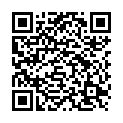|
|
|
| Module code: BIBW-240 |
|
|
4V (4 hours per week) |
|
5 |
| Semester: 2 |
| Mandatory course: yes |
Language of instruction:
English |
Assessment:
Written exam (90 minutes / can be repeated semesterly)
[updated 14.03.2018]
|
BIBW-240 (P420-0447) International Business, Bachelor, ASPO 01.10.2013
, semester 2, mandatory course
BIBW-240 (P420-0447) International Business, Bachelor, ASPO 01.10.2017
, semester 2, mandatory course
|
60 class hours (= 45 clock hours) over a 15-week period.
The total student study time is 150 hours (equivalent to 5 ECTS credits).
There are therefore 105 hours available for class preparation and follow-up work and exam preparation.
|
Recommended prerequisites (modules):
None.
|
Recommended as prerequisite for:
BIBW-441 International Market Research (focus module)
BIBW-442 International Marketing Instruments (focus module)
BIBW-443 International Marketing Seminar (focus module)
[updated 26.02.2018]
|
Module coordinator:
Prof. Dr. Stefanie Jensen |
Lecturer: Prof. Dr. Stefanie Jensen
[updated 01.10.2017]
|
Learning outcomes:
After successfully completing this module, students will:
- be able to explain basic marketing concepts and the marketing management process
and critically examine marketing activities with regard to the company.
- be able to explain the necessity of intercultural marketing and
identify, explain and reflect upon fundamental orientation patterns of international market cultivation.
- be able to explain basic concepts and models of consumer behavior research,
describe and exemplify factors influencing purchase decisions and
be able to provide qualified information on the results of consumer behavior.
- be able to describe the basic idea of market segmentation, approaches and criteria,
as well as implementation examples.
- be able to illustrate the connections between the importance of information in the marketing process and
the essential tasks of market research,
- be able to explain the benefits and types of market research,
- be able to describe essential sampling procedures, methods and instruments of
gathering information
- be able to divide up the course of a market research study into different phases.
[updated 04.02.2020]
|
Module content:
- Concept of marketing, market-oriented management and the
marketing management process
- Critical assessment of the impact of marketing on society
- International market cultivation orientations, standardization/
differentiation debate
- Principles of consumer behavior
- Market segmentation methods, transnational target groups
- Importance of information in the marketing decision process
- Principles ands tasks of market research
- Different forms of market research (primary/secondary, in-house/outsourced,
quantitative/qualitative market research)
- Phases and conception of the market research process
- Non-random sampling
- Methods and instruments for gathering information
[updated 04.02.2020]
|
Teaching methods/Media:
Lecture with group work and case studies
[updated 14.03.2018]
|
Recommended or required reading:
Kotler, P. et al: Grundlagen des Marketing, München
Meffert, H. et al.: Marketing. Grundlagen marktorientierter Unternehmensführung. Wiesbaden.
Müller, S.; Gelbrich, K.: Interkulturelles Marketing, München
Keegan, W.J.: Green, M.C.: Global marketing, Boston et al.
Kotabe. M.; Helsen, K.: Global marketing management, Hoboken
Mooij, M: Consumer behavior and culture : consequences for global marketing and advertising, Los Angeles
(latest edition)
[updated 14.03.2018]
|


